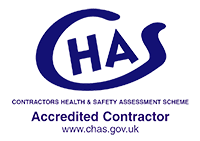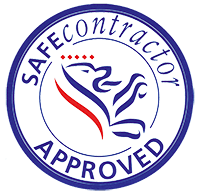Troubleshooting guide for low water pressure
Low water pressure in your home can be very frustrating when the bath takes a long time to fill or your shower is reduced to more of a dribble, but it can also affect things like the performance of your boiler so it is something that you need to take seriously.
If you suspect that your water pressure is low you can test it yourself. Read how to do that here. Once you have established that it is low you can try to determine the cause as this can vary.
First of all, is it affecting all water coming into the home, is it one particular tap or is it just upstairs? Figuring out this out will go a long way towards working out the cause.
If you have low water pressure on all taps:
If the water pressure is generally low everywhere it comes into the house, check the following things:
- Is your water provider doing works locally? If the water company is working on the supply in the same street or close by then this could potentially affect water pressure. Usually they will notify people of any planned major works but they may not be able to in the event of an unexpected leak or issue. Check their website for notices of works or ring their helpline. If it is down to this it should only be a temporary issue
- Is there water running elsewhere? It sounds obvious but if another tap is running it can affect water pressure elsewhere in the house. For example if someone is watering the garden with the hose, if someone is running a bath or if the washing machine is on. Just check all other taps and appliances first so you can eliminate these before seeking help.
- Is there a leak somewhere? A leak within the home can cause low water pressure because water is escaping somewhere. Look for obvious signs of a leak such as damp patches on floors, walls and ceilings, mould and mildew (and associated smells) or water pooling in the garden. This doesn’t necessarily need to be a leak on a pipe; a leaking toilet can also cause low pressure. Try putting some food colouring into your cistern and don’t flush it for at least an hour. If the colour comes through into the toilet bowl it means the toilet is leaking. For all of these issues you will need to call a plumber.
- Do you have mineral build up in the pipes? Calcium and other minerals can build up in pipes. There’s no obvious way to check for this but you can try to clear the pipes to see if that helps and it certainly won’t do any harm. This can be done yourself using chemicals or good old fashioned vinegar and bicarbonate of soda but it does take a bit of time and you won’t be able to run your taps or flush your toilet during the process (you may need to allow 4 or 5 hours for it to work, depending on what you use). See some instructions here. Alternatively, if you don’t feel confident doing this yourself, it is something a plumber can do for you.
- Is it very cold outside? In the winter, when temperatures hit freezing, your pipes can freeze up and this can restrict water flowing through. Try flushing through hot water and also apply heat externally to outdoor pipes to defrost them. It’s worth noting that this issue can be exacerbated by mineral build up which will reduce the diameter of the pipe or a leak which leads to a slow continuous flow of water. These issues will also need dealing with.
- Check the pressure reducing valve (PRV). The PRV regulates pressure and is located on the line where it enters the house. It is bell shaped and will have a screw on the valve. To increase water pressure, tighten it by turning it clockwise. To decrease water pressure, loosen the adjusting screw by turning it counter-clockwise. While you’re there, also check that the shut off valve is fully open. This is usually located close to the PRV or may be near the water meter if you have one. This is what you can use to shut all water supply to the house off so if it has turned, even a little bit, it can affect the pressure.
If low pressure is isolated to one area, try the following:
- Blocked aerator on the tap. The aerator on the faucet of the tap could be blocked or clogged. Remove it and either clean it by soaking in a water/vinegar solution or simply replace with a new one, as they’re not expensive. If you remove it and it does not appear to be blocked, you can at least eliminate this as the cause.
- Low pressure only on hot water. If low pressure is only affecting the hot water this points the issue being down to your water heater such as your boiler or immersion heater. Check your boiler to see if it’s displaying any fault codes but it’s best to call in a heating engineer to investigate
- If the kitchen cold water tap is OK but others are not. Your mains water comes into the house and feeds your kitchen tap first. If the pressure on this tap is ok but others are not it does indicate that the issue is somewhere in the house rather than a mains supply issue. Try the checks outlined here to try to determine the cause but if you can’t identify it you’ll need to call in a plumber
By now, if you’ve followed all the above advice, you may have resolved the problem, you may have identified the problem but be unable to resolve it or you may still be at a loss. If it’s either of the latter then you need to call in an expert to identify and deal with the issue. This will usually be a plumber but may require a heating engineer if the issue could be related to the boiler. A good plumbing and heating firm will be able to make an initial assessment and send the right tradesperson round to do this.
Low water pressure does not usually need to be something you just have to put up with and it could be an indication of a bigger problem which should be dealt with to avoid greater damage in the long term.
If you have poor water pressure and would like some professional advice, please call us on 0333 577 0151 or send us a message.





